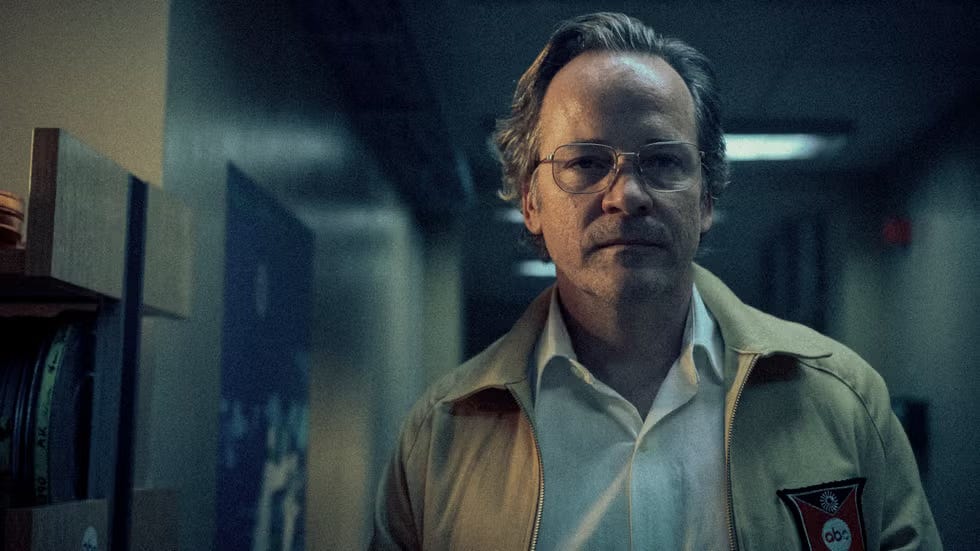In Review: 'Nickel Boys,' 'September 5'
In this week's new releases Colson Whitehead's Pulitzer-winning novel gets a distinctive and moving adaptation while a docudrama revisits the Munich Massacre from the POV of the team covering it.
Nickel Boys
Dir. RaMell Ross
140 min.
One of Nickel Boys’ most memorable scenes involves a trick of the light. Elwood (Ethan Cole Sharp), the teenage resident of the Nickel Academy, a reform school in rural Florida, has traveled to a nearby small town on a supervised errand. Through the summer haze he believes he sees Martin Luther King. Jr. across the street then rushes to greet him, only to realize it’s only a cardboard standee and not the man himself. The moment is only the latest in the string of crushing disappointments, but the hope it stirs in Elwood suggests a spirit that even his time as resident at Nickel hasn’t extinguished, at least not yet.
Previously best known for the lyrical documentary Hale County This Morning, This Evening, director RaMell Ross brings that film’s immersive approach to this adaptation of Colson Whitehead’s Pulitzer-winning 2019 novel, which is largely shot from a first-person point-of-view. What could play like a gimmick instead feels enveloping and deeply considered in the way other films that use this perspective rarely are, as an early shot in which we see Elwood’s image—and the eyes through which we’re looking—reflected back in the chrome of an iron as it slides across the ironing board. First-person cinema usually brings to mind the shaky, handheld camerawork and kinetic chaos of found-footage horror; this is its opposite. Every detail counts.
As Nickel Boys opens, Elwood enjoys a relatively stable life in Tallahassee in the early 1960s where’s being raised by his grandmother Hattie (Aunjanue L. Ellis-Taylor). A gifted kid with an interest in doing his part for the Civil Rights Movement, Elwood attracts the attention of Mr. Hill (The Last Black Man in San Francisco’s Jimmie Smalls), a veteran Freedom Rider who recommends him for a scholarship at a nearby college. But when Elwood unwittingly hitches a ride with a car thief on his way to school, his life takes a sudden, sharp turn that lands him in the Nickel Academy and the humiliations and horrors found within its grounds, particularly for the Black residents who live in even shabbier conditions than their white counterparts.
At Nickel, Elwood befriends Turner (Brandon Wilson), a classmate/inmate from Houston who takes him under his wing and becomes the film’s other POV character. (The film feels most traditional in the scenes in which they talk to one another and the shifting perspective resembles a conventional shot-reverse shot set-up.) Without losing the thread of the narrative, Ross depicts their experiences as a series of isolated moments. In one they enjoy a rare chance to relax while painting one of the administrators’ houses. In another Elwood recovers from brutal corporal punishment, while Turner takes a day off in the infirmary by making himself sick to his stomach. In another still, they watch a boxing match with potentially fatal consequences for one of its participants.
Scripted by Ross and his Hale County producer Joslyn Barnes, the film stays faithful to its source material while rendering it as a series of vignettes interrupted at times by scenes from the future. Daveed Diggs plays an initially unidentified character seen only from behind, alongside montages of archival footage and news reports, and moments of abstraction.
Whitehead’s novel draws on real-life events concerning the years-later discovery of corpses on the grounds of a Florida reform facility, revisiting the not-so-distant past with an immediacy that Ross’s film intensifies. What can seem disorienting at first. This simply isn’t how most movies are shot. But it quickly starts to feel like the right—maybe the only—way to adapt this novel. Ross denies the audience the chance to put their distance between themselves and the story being told, with all its heartbreak, tenderness, cruelty and, in the moments of connection that defy the dehumanization Elwood and Turner experience, a hope that the way things are are not the way things must always be. —Keith Phipps
September 5
Dir. Tim Fehlbaum
94 min.
September 5, the third feature from Swiss director Tim Fehlbaum, portrays the professional drama and moral dilemmas faced by the ABC Sports team covering the 1972 Munich Olympics during the events of the Munich Massacre, a terrorist attack by the PLO-affiliated Black September that led to the death of 11 members of Israel’s Olympics team. It also depicts, in nearly as much detail, the analog technology used by the team in exacting detail. The film makes these twin interests seem inextricable even before the film’s protagonists take an unexpected detour into hard news.
Broadcasting means choosing the right camera at the right moment, offering vital information to anchors only they can hear as they simultaneously try to conduct interviews, mixing and matching between video feeds and film footage. Making it all run smoothly demands meticulous, hands-on attention. For instance, one character identifies an Israeli hostage within the camera frame as fencing coach Andre Spitzer, adding his name to the screen involves placing each letter in front of a camera that will provide an overlay to the live footage. It’s a hard job even on an easy day, one in which every decision can change the shape of a story.
September 5, 1972 was not an easy day, but though Fehlbaum depicts the ABC Sports team performing as well as possible under trying circumstances his film is less a story of journalistic heroism—which would be wildly inappropriate given the subject and the ultimate outcome—than a depiction of hard choices made under impossible circumstances. Set almost entirely within ABC’s Munich headquarters near the Olympic Village, the film creates a claustrophobic environment filled with professionals who suddenly find themselves in unmapped terrain. John Magaro provides the nucleus of the strong ensemble as Geoffrey Mason, an assistant producer trying to manage a spiraling situation while meeting the demands of his veteran boss Roone Arledge (Peter Sarsgaard), who refuses to surrender the story to the ABC News team, and operations manager Marvin Bader (Ben Chaplin), who advises a more cautious approach. That they’re visitors in a foreign land is underscored by the presence of Marianne (Leonie Benesch), a German team member whose ability to translate leads her to take a more hands-on role (though that doesn’t stop others from asking her for coffee).
Fehlbaum’s in-the-thick-of-it docudrama approach, complemented by Markus Förderer’s cinematography and post-production tweaks that suggest ’70s film stock, gives September 5 a disarming immediacy enhanced by the use of actual broadcast footage from the day. (ABC Sports anchor Jim McKay is played by a double shot from a distance and from behind within the film but that’s the real McKay seen on screens.) As the crisis stretches on through the day and into the night they find themselves making decisions no journalists have had to make before as they effectively become the eyes of the world.
Do they want to put themselves in a position to show the hostages being murdered on camera? What steps do they need to take to prevent their broadcast from being used to thwart rescue efforts? What are the consequences of running information that hasn’t been confirmed by multiple sources even when it comes from members of the German government? Are they effectively giving the terrorists what they want? (And is “terrorist,” depicted as not yet in common usage, even the right word?)
Without putting too fine a point on it, Fehlbaum’s film makes clear these are the seeds of questions that have only blossomed in the decades since the attack, and only gotten thornier as technology has advanced and media changed. September 5 depicts a moment that doubles as a road sign to the future but it’s more concerned with depicting skilled pros make hard choices they don’t feel qualified to make, realizing even in the moment, they’ll have to live with the consequences the rest of their lives. —Keith Phipps








I’m out of town this week for a personal matter but I want to ditto Keith’s opinions on both of these films. NICKEL BOYS is a great as everyone’s been saying, so there’s that. But shout out to Paramount Pictures for releasing SEPTEMBER 5, the sort of no-stars/just-talent docudrama that just isn’t made anymore.
I'm sensing that Nickel Boys just might be better than Hardcore Harry.